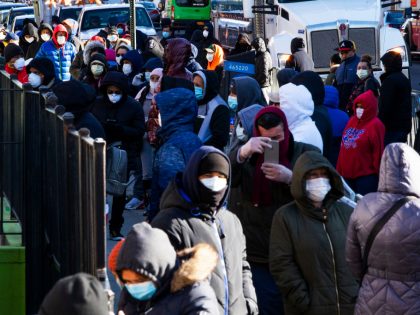
The Kuleana of Socialism in Hawai‘i
It's election day for Kaniela Ing in Hawai'i today. His campaign shows that socialism has both deep history and future potential on the islands.

It's election day for Kaniela Ing in Hawai'i today. His campaign shows that socialism has both deep history and future potential on the islands.

Richard Aoki was well-known as a lifelong Bay Area radical, playing key roles in the Socialist Workers Party, Berkeley ethnic studies strike, and Black Panther Party. He was also an FBI informant.

Sunday's election in Sweden shows how the decline of robust social-democratic guarantees can feed the rise of the far right.

The Yellow Vests movement has faced shocking police violence. And it’s not just from a few bad apples: it’s part of President Macron’s strategy to silence protest.

Three months since the gilets jaunes protesters first blockaded roads around France, the movement has created a crisis in Emmanuel Macron’s presidency — and one that’s due to last.

Though educators did not achieve all their demands, Oakland’s teachers strike transformed the city, won important gains, and empowered educators to take on the billionaire education privatizers.

Today marks one year since yellow-vested protesters first occupied roundabouts and intersections across France. The movement has given a voice to parts of society that usually go ignored — and the newfound spirit of revolt is continuing to shake Emmanuel Macron’s government.

Jackie Fielder is a democratic socialist running for state senate in California. In an interview, she explains how her activism for public banking, affordable housing, and indigenous rights led her to run for office, and how she found a political home in the Democratic Socialists of America.

The European country hit hardest by coronavirus, Italy has announced a near-total shutdown of shops and public venues, but many nonessential workplaces are still running. Refusing to let bosses risk their safety, workers are now going on strike.

After the 2008 crisis, European authorities saved the banks but forced welfare states to slash spending. Faced with the coronavirus, austerity-hit hospital services are under siege — yet the European Central Bank is again helping out the financial markets, not public health care systems.

As coronavirus spreads rapidly around the world, outpacing our capacity for testing, let alone treatment, the long-anticipated monster is finally at the door. And with global capitalism so impotent in the face of this biological crisis, our demands must be for properly international public-health infrastructure.

In last night’s debate, Joe Biden claimed that Italy shows public health care doesn’t help the response to coronavirus. But the Italian health service is providing a vital defense against mass infection — ensuring that any ill person can get proper treatment, regardless of their ability to pay.

On Tuesday, despite urgent pleas from public health experts for postponement of the balloting, voters reported being forced into unsanitary environments and jumping through arduous hoops to vote. The culprit was the party that believes in science and voting rights.

Containment isn’t enough. We need a wartime mobilization to expand coverage, capacity, and production in order to test, trace, and treat coronavirus. And Bernie Sanders must play a major role in advocating for more aggressive measures.

In the face of inadequate health and safety protections against coronavirus on public transit, Detroit bus drivers walked off the job Tuesday demanding management take action. They won.

In fighting for a Green New Deal we can’t just focus on clean power and innovative ways to decarbonize our society and world. We also need to rethink what and how much we consume — without falling prey to left arguments that amount to austerity.

Last night Italy’s prime minister declared that all nonessential workplaces will be shut down to stem the spread of COVID-19. For two weeks, social distancing has been undermined by employer pressure to keep production going. As contagion soars, other countries would be foolish not to learn Italy’s lesson.

Faced with another global recession, many governments are responding with even stronger state interventions than they did in the 2008 financial crisis. But stimulus packages to prop up businesses must also pose the question of public control — not just bailing out corporations, but repurposing their operations to confront the disasters ahead of us.

The Spanish flu of 1918 infected a quarter of the world population and was decisive to the rise of public health-care systems. Today’s COVID-19 crisis is again showing that collective problems demand collective solutions — and a state that provides for all our essential needs.

Uber announced it will give its drivers two weeks paid leave — but only if they test positive for coronavirus. We talked to a veteran Uber driver in Philadelphia about his decision to stop driving and the company’s pathetic response to the pandemic.